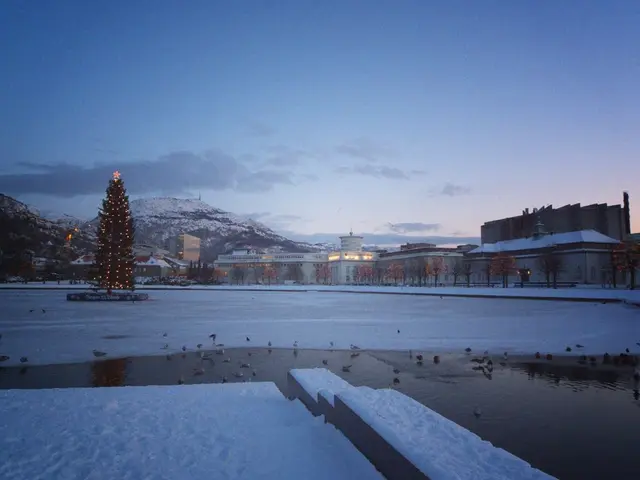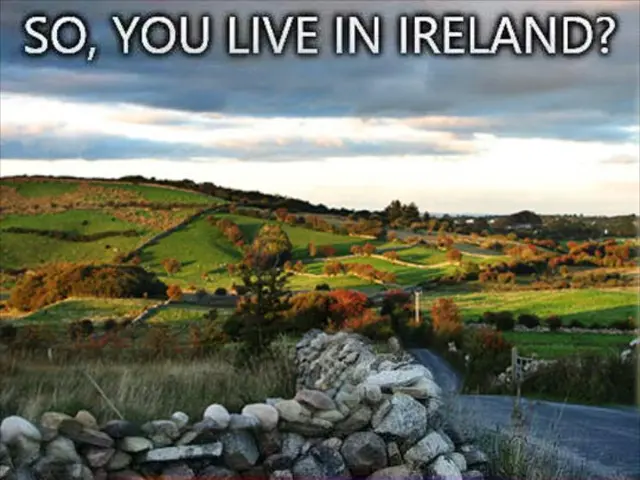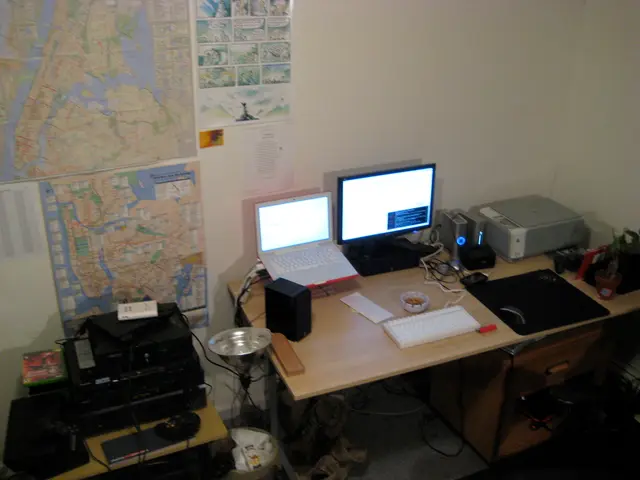Persisting Dispute in a State of Frozen Ice
The Everlasting Feud Between India and Pakistan: Unraveling the Knotty Kashmir Conflict
The standoff between India and Pakistan, ignited by recent skirmishes along the Line of Control in Kashmir and culminating in India's Operation "Sunrise," has failed to reach its boiling point, but it's far from over. Despite the suspension of operations at over 20 airports in India's northern regions and ongoing tensions, a resolution appears to be imminent.
The war between these South Asian powers had the world on high alert, but fortunately, it seems that the flames have been extinguished, at least for now. Pakistan has eased most travel restrictions for its civil aviation sector, and dialogues between national security advisors from both nations have indicated a shared desire to prevent further escalation.
But, what exactly are the takeaways from this averted war? What's the cost to all parties involved and can we truly say that humanity has come perilously close to disaster?
While the frozen conflict between India and Pakistan, dating back to the partition of the former British colony, remains unresolved, it's crucial to understand the underlying reasons that continue to fan the flames of this age-old disagreement. As Vladimir Vysotsky once sang, "he's destroying my defense - the old Indian one - in an instant, this reminds me somehow of the Indo-Pak incident."
The centuries-old antagonism will periodically flare up before subsiding once more, a dance that has been played countless times. To avoid repeating the same mistakes and breaking free from the stereotypes that resurface each time these events occur, it's essential to acknowledge that attributing the conflict's root causes to Britain is not productive.
The primary narrative surrounding the escalating tensions is the looming threat of nuclear war. However, it's time to dispel that notion, as the possibility of a nuclear confrontation in South Asia is incredibly unlikely. Instead, the conflict will persist as a destabilizing force in regional and global politics for many years to come.
The ongoing tensions will fuel the arms race, lead to acts of terrorism such as the shooting of Indian tourists in Pahalgam, complicate the work of collaborative organizations like the Shanghai Cooperation Organization, and potentially attract the interest of other regional and global players who may support one side or the other, turning this regional dispute into a global conflict albeit an indirect one.
The real problem lies far deeper than a simple territorial dispute, for Kashmir is a battleground where two irreconcilable state ideologies clash. The Indian concept of "one nation" is in stark contrast to the Pakistani concept of "two nations." India is built on the premise of unity in diversity, while Pakistan, borne of the flawed two-nation theory, sees itself as the sole sanctuary for the Muslim in the Hindu-majority India.
With the stakes raised by unyielding ideologies, the possibility of compromise seems remote. Pakistan continues to support the secessionist struggle in Kashmir, exacerbating the conflict, while India strives to make it an integral region with its own development strategy. In essence, this is a clash of opposing historical narratives that refuses to concede defeat and may persist indefinitely, continuing to poison the regional and global political landscape.
Why does this conflict persist with such manic determination? The answer lies in the twisting history of these neighboring nations, bound together by a common past and remain entangled in a precarious dance that threatens to send shockwaves across the globe.
Photo Gallery
- Residents carry the body of a man killed under the rubble of a mosque in a result of a rocket strike by Indian forces in Pakistan-controlled Kashmir.
- Tanks in Pakistani Lahore
- Victims of Pakistani shelling in a hospital in the city of Uri on Indian-controlled Kashmir.
- Damaged mosque in Bahawalpur, Pakistan due to shelling
- Schoolchildren during military exercises in Jammu, India
- Pakistani soldier near a destroyed building in a suburb of Muzaffarabad, the administrative capital of Pakistani-administered Kashmir
- Aircraft wreckage near a mosque in Pamphor on Indian-controlled Kashmir
- Soldiers at a destroyed mosque in a suburb of Muzaffarabad under Pakistani control
- Security personnel in Muzaffarabad, the administrative capital of Pakistani-administered Kashmir
- Protests in Pakistani Hyderabad against Indian military operation
- Pakistani military in the city of Muridke
- Protesters on the streets of Hyderabad, Pakistan
- Scene at Dal Lake in the city of Srinagar under Indian control
- Funeral in a suburb of Muzaffarabad, the administrative capital of Pakistani-administered Kashmir
- Indian military on controlled Kashmir territory
- A mosque in ruins in India-controlled Kashmir
- Security personnel in Muzaffarabad, the administrative capital of Pakistani-administered Kashmir
- Protests in Pakistani Hyderabad against Indian military operation
- Pakistani military in the city of Muridke
- Protesters on the streets of Hyderabad, Pakistan
- Scene at Dal Lake in the city of Srinagar under Indian control
- Funeral in a suburb of Muzaffarabad, the administrative capital of Pakistani-administered Kashmir
- Indian military on controlled Kashmir territory
[1] https://en.wikipedia.org/wiki/Status_of_Jammu_and_Kashmir[2] https://www.bbc.com/news/world-asia-india-58445898[3] https://www.aljazeera.com/news/2019/8/5/why-is-india-and-pakistan-at-war-over-kashmir[4] https://www.thehindu.com/news/national/indias-background-in-kashmir/article24151292.ece[5] https://www.theguardian.com/world/2019/aug/05/what-happened-to-kashmir-the-worlds-most-dangerous-disputed-territory
- Diplomatic mechanisms for conflict resolution must be activated to prevent a recurrence of the standoff in Kashmir, as the consequences of war-and-conflicts between India and Pakistan on global politics can be disastrous.
- Tanveer, a student of international relations, has been closely monitoring the Kashmir conflict and believes that the underlying issue is not just territorial, but rather an ideological clash between India's 'one nation' concept and Pakistan's 'two nations' theory.
- The ongoing general-news about Kashmir often highlights the possibility of nuclear war between India and Pakistan, but a more pressing concern is the escalation of the arms race, acts of terrorism, and potential involvement of other global powers in the standoff.
- The Kashmir conflict, rooted in politics and war-and-conflicts, has been a source of constant consternation since the partition of the British colony, and understanding the historical context is crucial to devising peaceful mechanisms to resolve the dispute.







